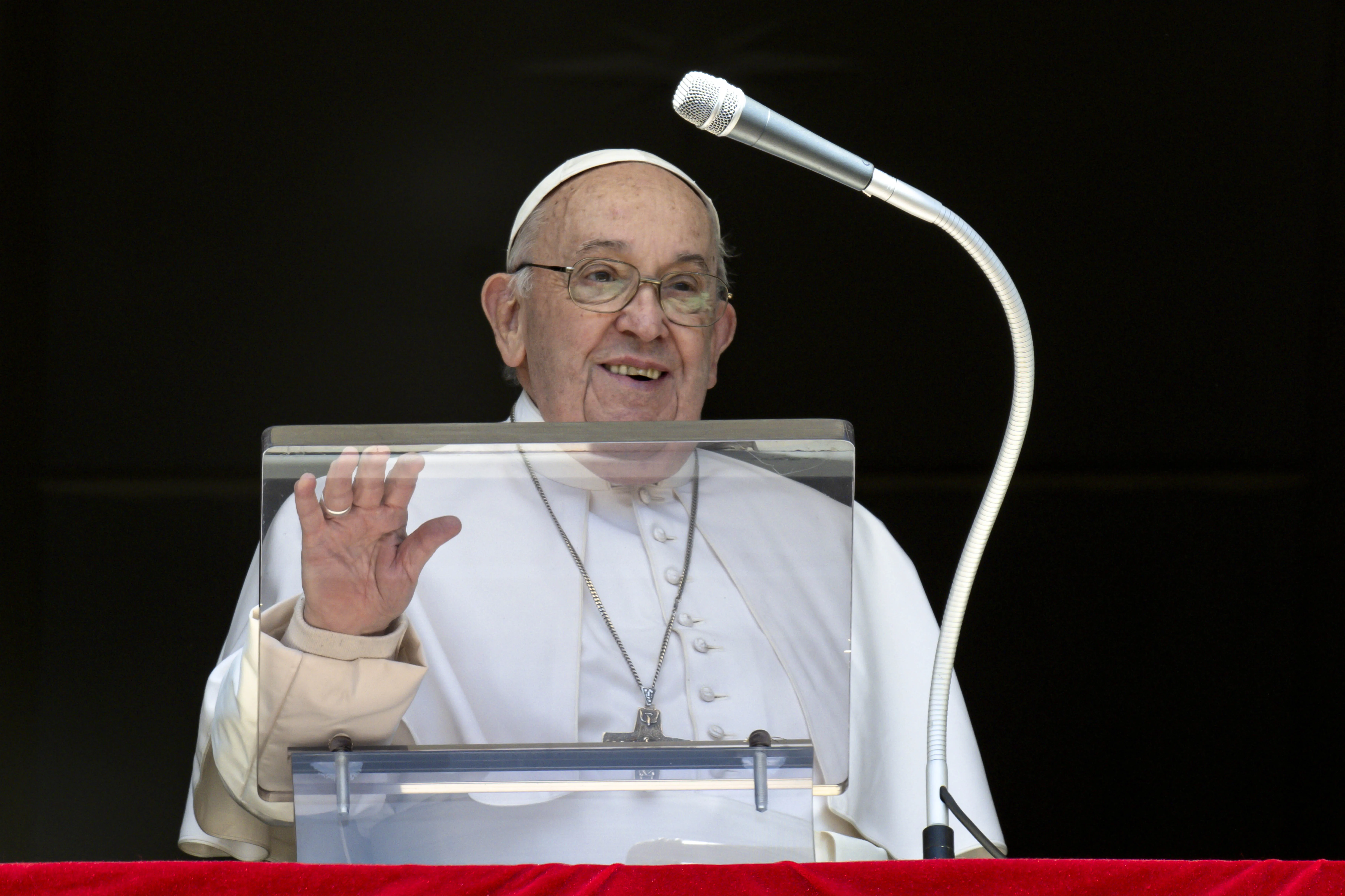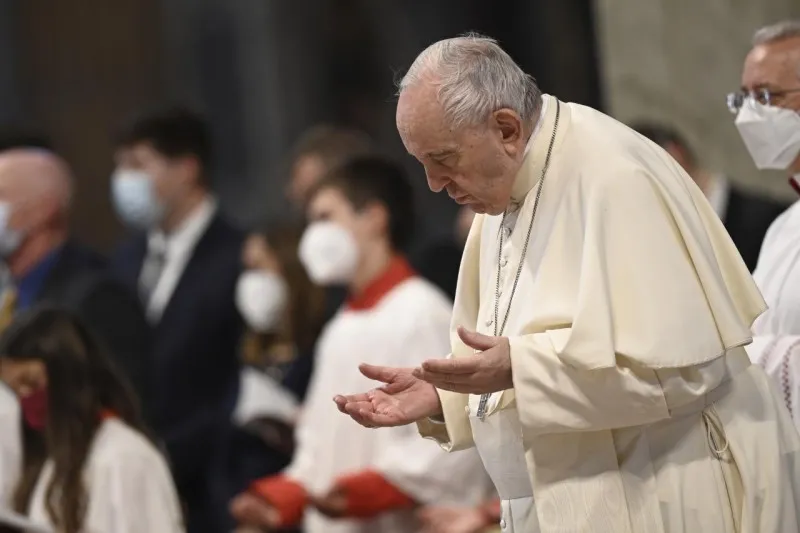
Pope Francis on Divine Mercy Sunday: The ‘fullness of life’ is ‘realized in Jesus’
 The Divine Mercy image is displayed at St. Peter’s Square before Pope Francis Regina Caeli prayer on April 7, 2024. / Credit: ALBERTO PIZZOLI/AFP via Getty Images
The Divine Mercy image is displayed at St. Peter’s Square before Pope Francis Regina Caeli prayer on April 7, 2024. / Credit: ALBERTO PIZZOLI/AFP via Getty Images
Vatican City, Apr 7, 2024 / 09:10 am (CNA).
Pope Francis during the Regina Caeli on Divine Mercy Sunday noted that the “fullness of life” comes not from the pursuit of transitory pleasure but is “realized in Jesus.”
“To have life,” the pope said, “it is enough to fix one’s eyes on the crucified and risen Jesus, encountering him in the sacraments and in prayer, recognizing that he is present, believing in him, letting oneself be touched by his grace and guided by his example, experiencing the joy of loving like him. Every living encounter with Jesus enables us to have more life.”
Divine Mercy Sunday, instituted by St. John Paul II during the Jubilee Year of 2000, is celebrated on the Second Sunday of Easter.

The pope drew upon the disciples, despondent and secluded in the upper room, who “are going through the most tragic moment in life” to showcase how Christ’s coming to them was a deeply transformative moment, one that not only reveals his mercy but also promises a new life.
“The Risen One comes to them and shows them his wounds,” the pope said. “They were the signs of suffering and pain, they could stir feelings of guilt, yet with Jesus they become channels of mercy and forgiveness.”
“The disciples see and touch with their hands the fact that with Jesus, life wins; death and sin are defeated. And they receive the gift of his Spirit, which gives them a new life, as beloved sons, imbued with joy, love, and hope.”
Pope Francis presented this message in contrast with today’s prevalent narratives of what constitutes a good life and the pursuit of happiness, observing that it is “a frenetic race to enjoy and possess many things.”
Cautioning against this materialistic and myopic view, he stressed that “by following the path of pleasure and power one does not find happiness.”
“Indeed, many aspects of existence remain unanswered, such as love, the inevitable experiences of pain, of limitations, and of death. And then the dream we all have in common remains unfulfilled,” the pope continued.
To counter this tendency the pope encouraged the faithful to ask the following questions: “Do I believe in the power of the resurrection of Jesus, in his victory over sin, fear, and death? Do I let myself be drawn into a relationship with him? And do I let myself be prompted by him to love my brothers and sisters, and to hope every day?”
At the end of the Regina Caeli, the pope reiterated his long-standing call for a “lasting peace” in “the tormented Ukraine” as well as in Palestine and Israel by imploring leaders to find a way to de-escalate tensions and to negotiate.
The pope’s plea comes six months after the start of the Israel-Hamas war on Oct. 7, 2023, which to date has left over 33,000 civilians dead in the Gaza Strip.




